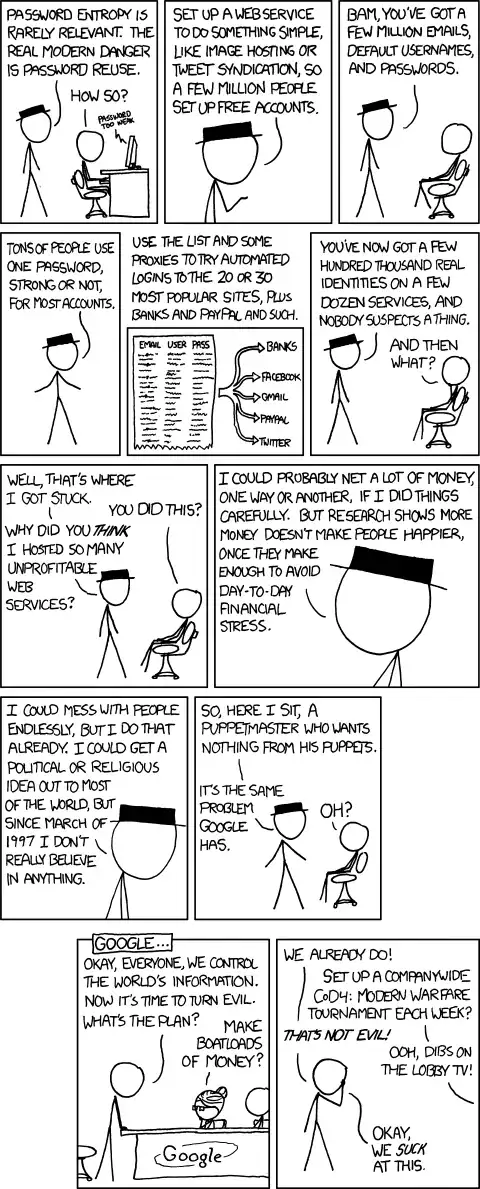You can't really solve the end user problem. Well, legally or ethically anyway. My vote goes toward the Home Realm Discovery problem.
EDIT:
The end user problem was in reference to previously posted answers. Home Realm discovery is part of a claims based authentication model, where you can select between multiple services/organizations to provide an identity for a user, much like OpenID/OpenAuth. The problem arises when you need to figure out which provider to get info from since you don't know anything about the user yet. It's a Chicken/egg thing: how do you figure out who to have authenticate the user when you don't know who the user uses to provide their identity.
The first obvious answer is to use only one provider, but that sort of negates the benefit of the model.
The second obvious answer is to ask the user. However, this is openID's downfall. Most people have no idea who their provider is. And what happens when you can authenticate against Google and Facebook, but you don't know which one is tied to the profile of the calling application?
This is affectionately referred to as the NASCAR problem with OpenID -- the launching page for OpenID usually has a bajillion logos for providers, so you need to select which provider to use. Which breaks when you have a custom provider.
Remember CardSpace/InfoCard/Information Cards? That attempts to solve the problem. It actually does a pretty good job theoretically. Practically notsomuch.
